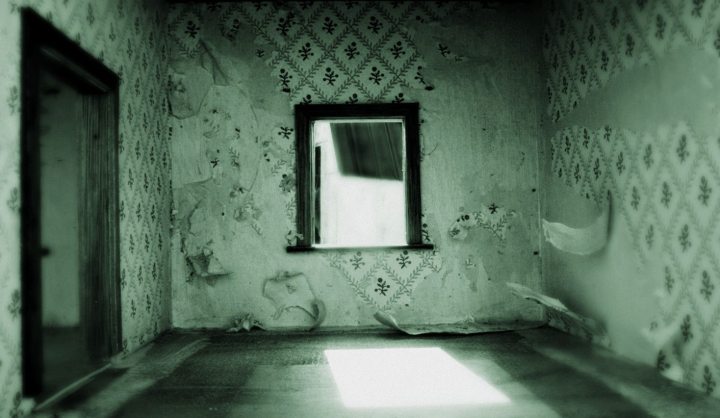Maverick Life, South Africa
Psyche of the nation: Towards a (mis)diagnosis of our self-hate problem

As some of the responses to the first article in this series suggested, clinical psychologists can get very upset when those they deem 'unqualified' presume to comment on the mental disorders that face our country’s youth. But since South Africa remains fourth worst in the world in terms of public sector mental healthcare provision, and since an admission of ignorance is very often a harbinger of non-ignorance, KEVIN BLOOM continues to seek out the contexts and mooted solutions to our collective psychic malaise.
For starters, a quote from a person mainstream academia has long deemed unfit to be quoted: “Unfortunately we find systems of education today that have departed so far from the plain truth that they now teach us to be proud of what we know and ashamed of ignorance. This is doubly corrupt. It is corrupt not only because pride is in itself a mortal sin, but also because to teach pride in knowledge is to put an effective barrier against any advance upon what is already known, since it makes us ashamed to look beyond the bonds imposed by our ignorance.”
The author of these words was John C Lilly, the American physician-neuroscientist who devoted his life to an investigation of the outer reaches of human consciousness, mostly via the use of the isolation tank (which he invented), dolphin communication (which he pioneered) and LSD-25 (which he dropped in abundance). As Lilly tended to employ such methods at the same time and in varying combinations, it goes without saying that he took his mind to places most of us have never been and will probably never go. And yet he emerged not only sane and psychically integrated but, by the testimony of almost everyone who’d ever met him, fiercely compassionate in his demeanour and perennially childlike in his outlook. Lilly was also a pioneer in electrical brain stimulation, being the first scientist to map out the pleasure and pain pathways in the human brain, and so when he was asked, at the age of 76, what his views were on mental disorders, his answer was a bit of a kick in the head to the aforementioned mainstream: “Do you know Thomas Szasz’s book The Myth of Mental Illness? Well that’s where I’m at. I don’t believe any of this mental health stuff; it’s all bullshit.”
It is likely that Desiré Gird, the clinical psychologist in the employ of the Western Cape Department of Health who called into question the worth of the protagonist in the first article of this series, Shalya Hirschson, on the grounds that the latter’s LinkedIn CV showed “limited clinical exposure” and that, as an educational psychologist, she had “little influence in accessing public healthcare services for patients,” would take offence at the faithlessness of Lilly. Mental healthcare, the government-salaried psychologist might protest, is not bullshit. We at the Daily Maverick wouldn’t presume to insist on one reading over another – we would simply like to point out, once again, that there are very few people like Hirschson in South Africa’s public sector hospitals.
As it turns out, the first article did not do full justice to the scale of the problem. We stated two weeks ago that based on this 2010 report South Africa has roughly one psychologist and/or psychiatrist per every 300,000 members of the medically uninsured public, and that such statistics do not begin to account for the necessary distinction between the mental healthcare needs of adults and children. But then the Daily Maverick’s Marelise van der Merwe drew attention to the following paragraph from this article on adolescent suicide, which she wrote and published in August 2015: “The South African Depression and Anxiety Group, meanwhile, tells Daily Maverick that there has been a 7.7% reduction in mental health bed allocations in hospitals across all provinces. South Africa is in the bottom four countries in the provision of mental health treatment. And here’s the kicker: per 100,000 members of the population, there are 2.8 in-patient beds in hospitals reserved for mental health. And despite our frightening child mental health statistics, 1% – one percent – of those beds go to adolescents.”
The consequences with respect to South Africa’s enduring self-hate pandemic might therefore appear, to the untrained eye, as understandable as they are distressing. In July, Van der Merwe published a comprehensive overview of the situation, in which many of the national stakeholders were interviewed, and in which one of the statistics highlighted was the country’s 10,000 annual suicides, mostly “young people with economically active lives”. A wide-ranging study on rural children in South Africa was also referenced, emphasising the 67% of respondents who had experienced a traumatic incident and the 8% of respondents who had fulfilled the diagnostic criteria for post-traumatic stress disorder. Finally, compounding the observed and tested reality that one in five South African children appeared to be suffering from a mental disorder “due to violence and family problems” at home was the following disheartening fact: a trivial 4% of our national budget is at present earmarked for mental healthcare, with little prospect of a meaningful increase in the foreseeable future.
At the risk of over-reach, and bearing in mind – as per Lilly’s caution above – that one person’s ignorance may well be another’s arrogance, the question must nevertheless be asked: is a solution ever going to emerge from the country’s mental healthcare sector?
This, to be very clear, is not to demean in any way the efforts of the trained psychiatrists and/or psychologists who, like Hirschson, operate on the principle that one life touched may be one life saved. It is not even to shine a spotlight on those psychiatrists and/or psychologists who police the qualifications of their colleagues on open national platforms – given the context, when they’re not bickering about the fine print, these professionals are in all likelihood attending to potential adolescent suicides themselves. But it is an attempt, however unsanctioned, to wonder aloud whether there are other, more effective routes towards a diagnosis and potential treatment for our urgent self-hate problem. The brutal fact is, we are not suddenly going to rocket up from fourth worst in the world in terms of mental healthcare for the uninsured to fourth best in the world, which is closer to where we need to be.
So what are the alternatives? Two direct responses to the opening article in this series are an indication of the range of approaches that are beginning to emerge from outside the mental healthcare sector. The first arrived last week from a public relations firm representing the No Crime Culture Project, a government-endorsed private initiative that operates on the assumption that “morality can be taught” to our youth – a category that extends, in their opinion, from four-year-olds to 25-year-olds. The project’s CEO and founder, Jolène Leeuwner-Maritz, winner of the South African Chamber of Commerce and Industry’s 2014 Businesswoman of the Year Award, had this to say (please bear in mind that we are quoting verbatim from the press release): “Globally a culture of self-interest has rooted, and the significance of morality has become clouded. In the result a lack of sympathy and sharing, the incidence of crime, youth violence and substance abuse have become prevalent. The apparent lack of morality and definite lack of morality education are appalling seeing that it has been proven by observation recorded more than 2300 years ago by Plato and Aristotle that judgement and sound reason can be taught.”
Hmm. We will hold off from prejudiced comment on whether English grammar can be taught, and simply remark, given that the project has the backing of the Gauteng education department, that the above may be vulnerable to conceptual attack. This is primarily because, as a rule in general but in South Africa in particular, the “enforcers” (again, the press release’s word) of a blanket morality tend in the end to invite questions about their own moral code. That said, the government appears to be in on the idea, and the first morality classes are scheduled for January 2016. And so aside from naming the project’s directors – the founder’s husband (attorney Jan Maritz), the founder’s father (advocate PG Leeuwner), Mr South Africa (Armand du Plessis), Mrs South Africa (Riana Mooi) and an Mbokodo Award-winner for fashion innovation (Hangwani Nengovhela) – all that’s left for us to do is provide website links where you can volunteer as an educator, offer a donation, or make personal contact.
Moving on then to the second direct response, which turned out to be a little more partial to the norms of scientific verifiability. It came from Dr Chandré Gould, senior research fellow at the Institute for Security Studies in Pretoria, and it began as a query about a source in the Daily Maverick’s original article, seeing as she felt there were certain “resonances” with her own areas of focus. Resonances how? “A lot of my work at this stage has been around assessing the implementation of evidence-based parenting programmes in the community,” said Gould.
Maybe it was just our relief at hearing the word “evidence” in place of the word “Plato”, but Gould’s April 2015 policy paper, co-written with Catherine L Ward, associate professor in the department of psychology at the University of Cape Town, was cause for some excitement. Entitled ‘Positive parenting in South Africa: why supporting families is key to development and violence prevention’, the paper opened with the encouraging assessment that evidence-based programmes to support positive parenting were both necessary and achievable. Also, there was an introductory line about “currently assisting a provincial government to develop a plan to take evidence-based parenting programmes to scale at provincial level”, which was kind of uplifting in the context of the Gauteng education department’s impending dalliance with applied ethics.
Then, upon moving into the text proper, we were confronted with a rare opportunity for a spontaneous rendition of Handel’s Messiah (the ‘Hallelujah’ chorus bit): “There is a strong body of national and international evidence we can draw on to help us understand what causes violence, as well as a growing body of South African evidence on what works to prevent it. Government has identified the need to intervene early to prevent violence and the Department of Social Development has a strong legal and policy framework around which to grow preventative interventions.
“Preventing the kinds of violence children experience, and grow up to repeat, requires us as a society to start thinking about how best we can support parents.”
Somehow, it just felt right. In the months ahead, as we attempt in John C Lilly’s words to “look beyond the bonds imposed by our ignorance,” we hope to arrive at a place where we can say it is right. If not, if for some reason “harsh and inconsistent parenting that features a lack of warmth” turns out not to be a primary cause of our self-hate problem – or if the government manages to forget its promises and drops the ball – you’ll read about it here.
Meanwhile, please, send us your press releases. DM
Photo: Dark & Dangerous, by Theresa Williams.



















 Become an Insider
Become an Insider